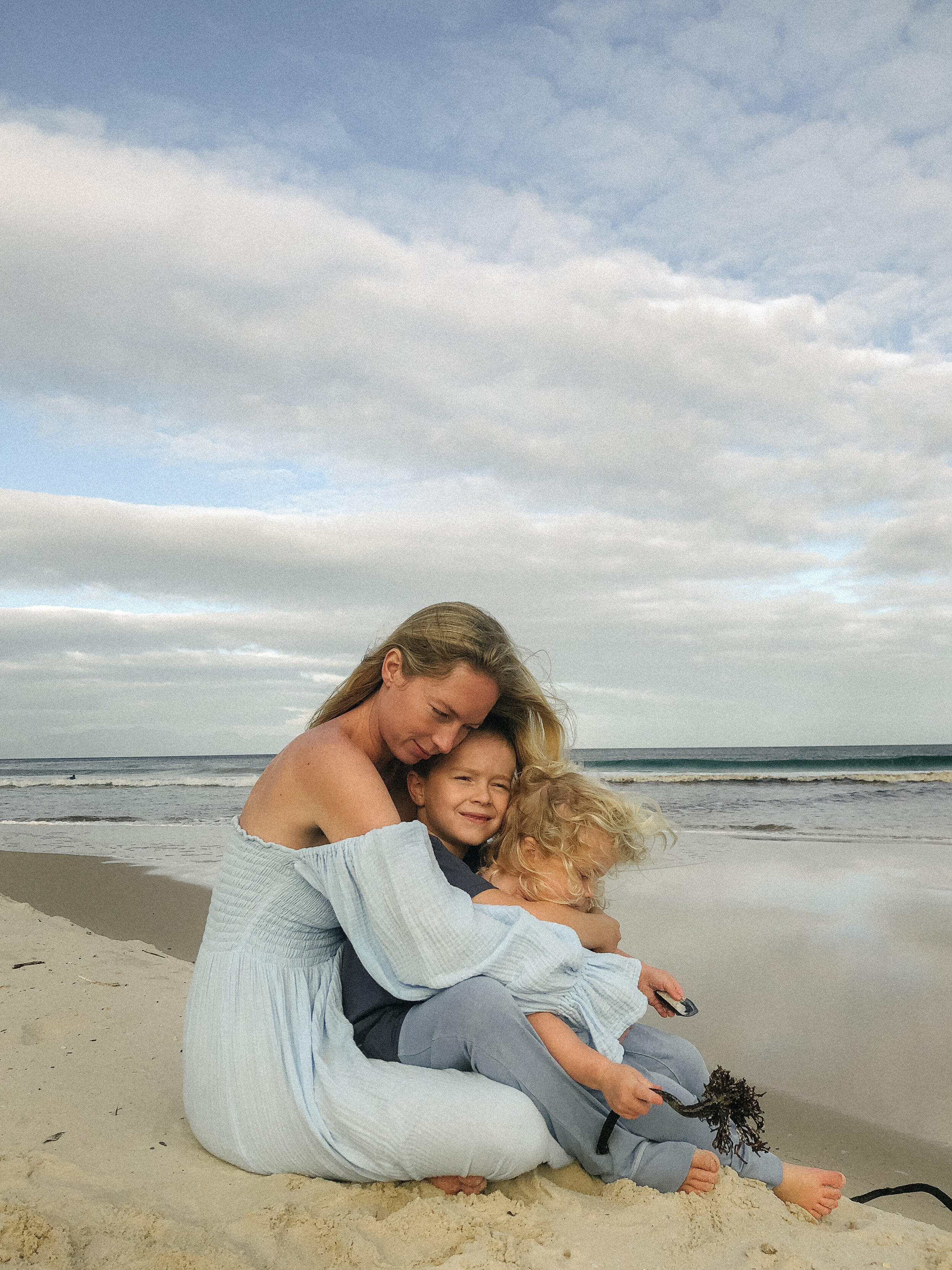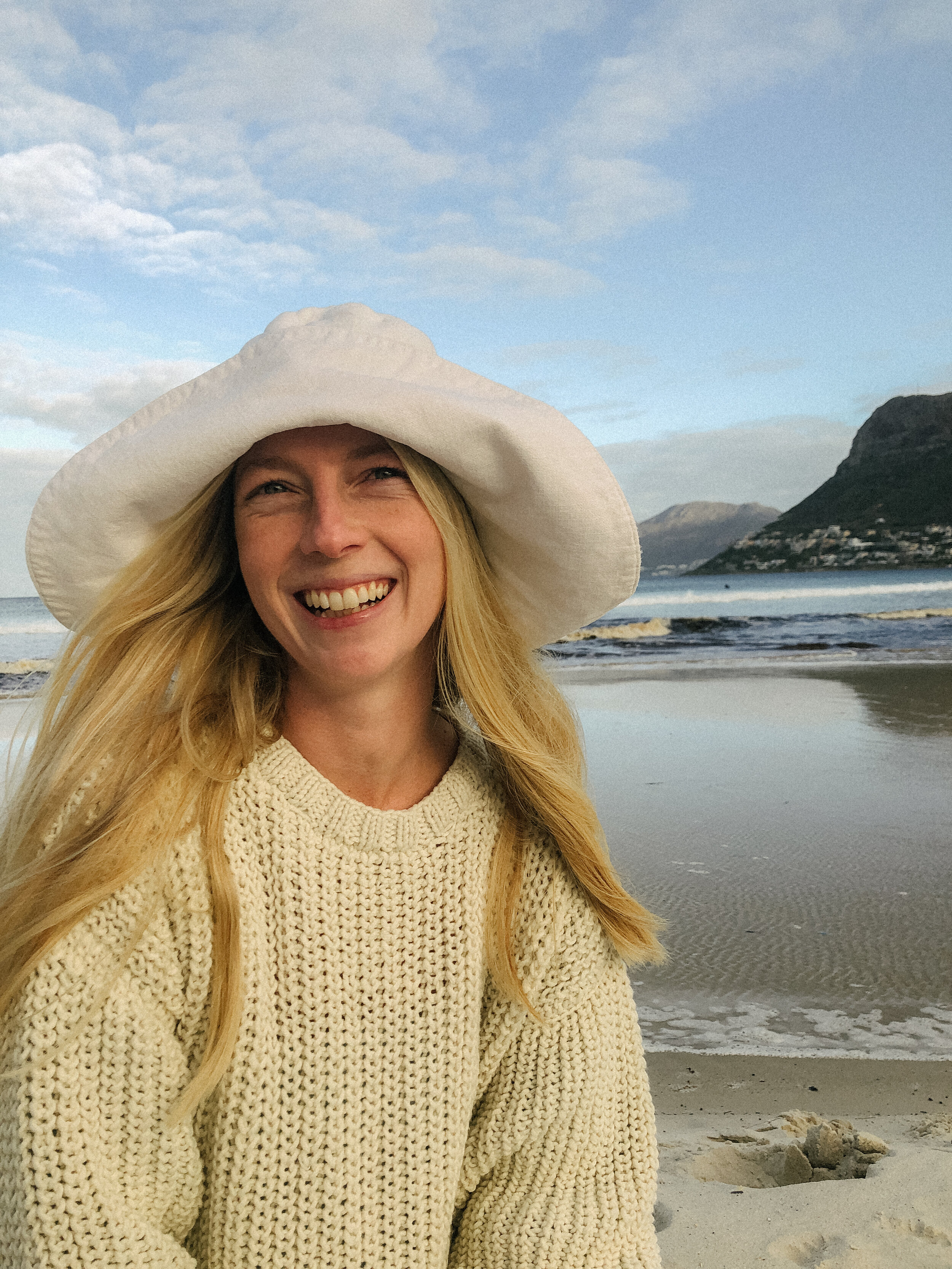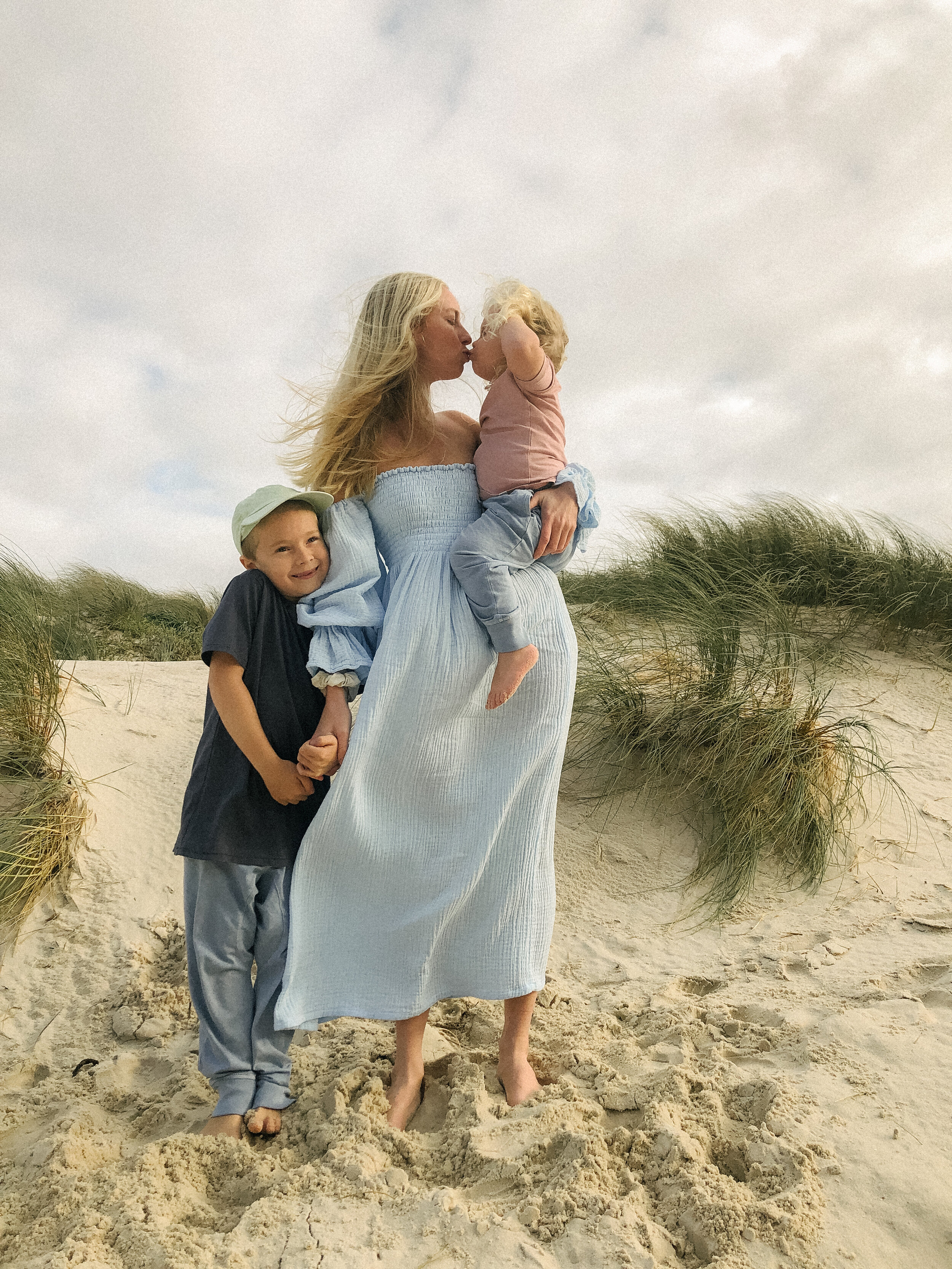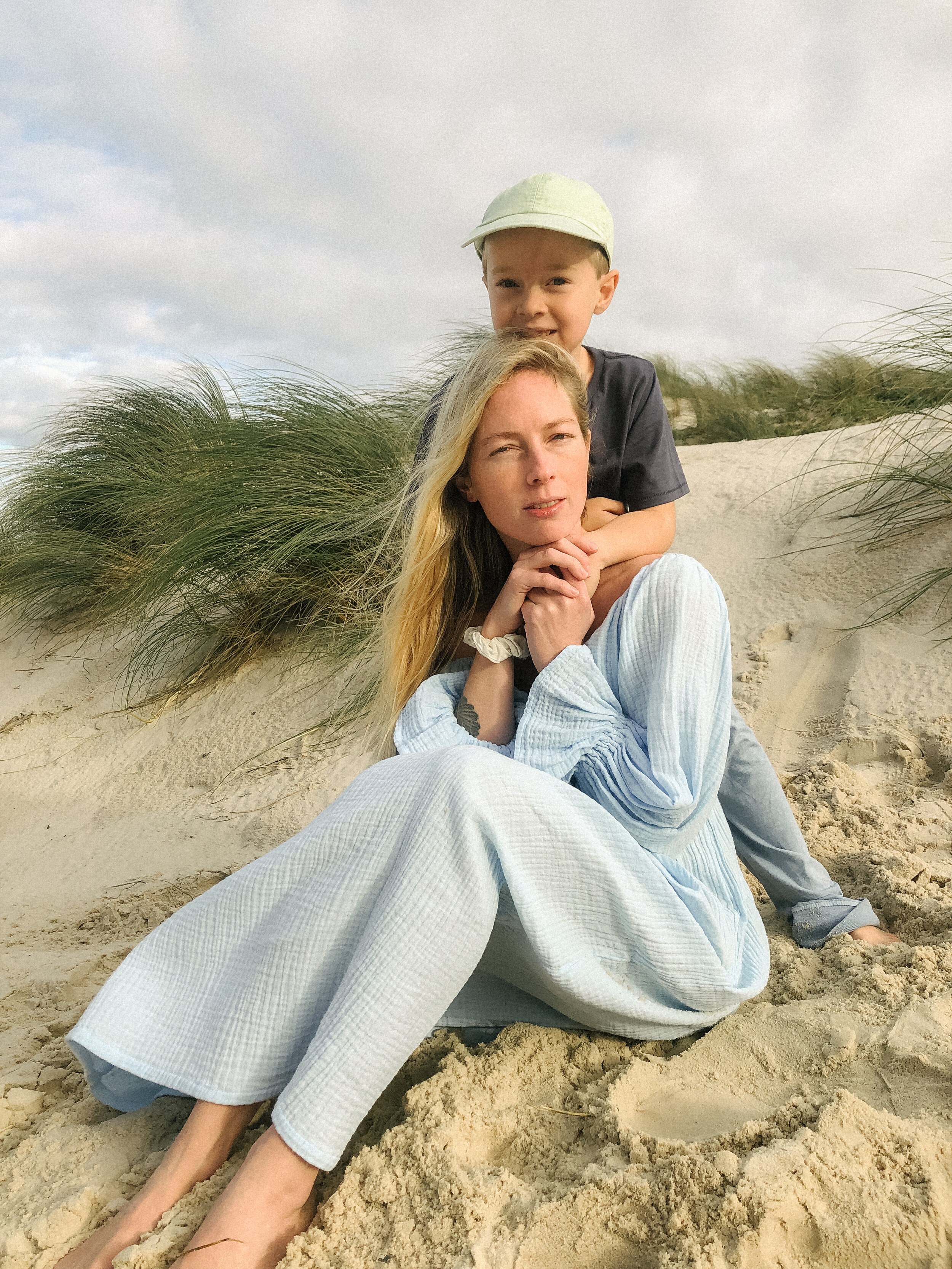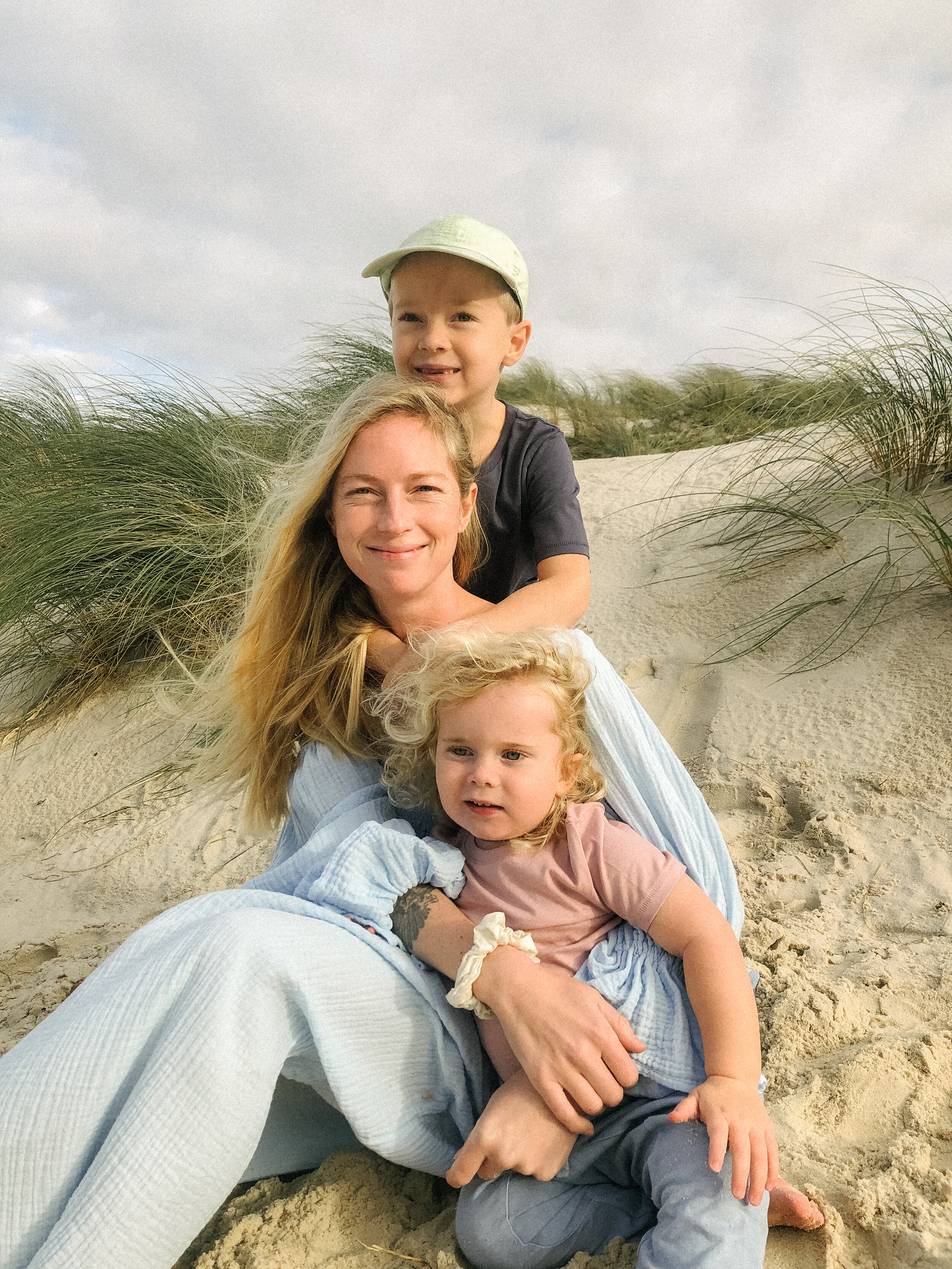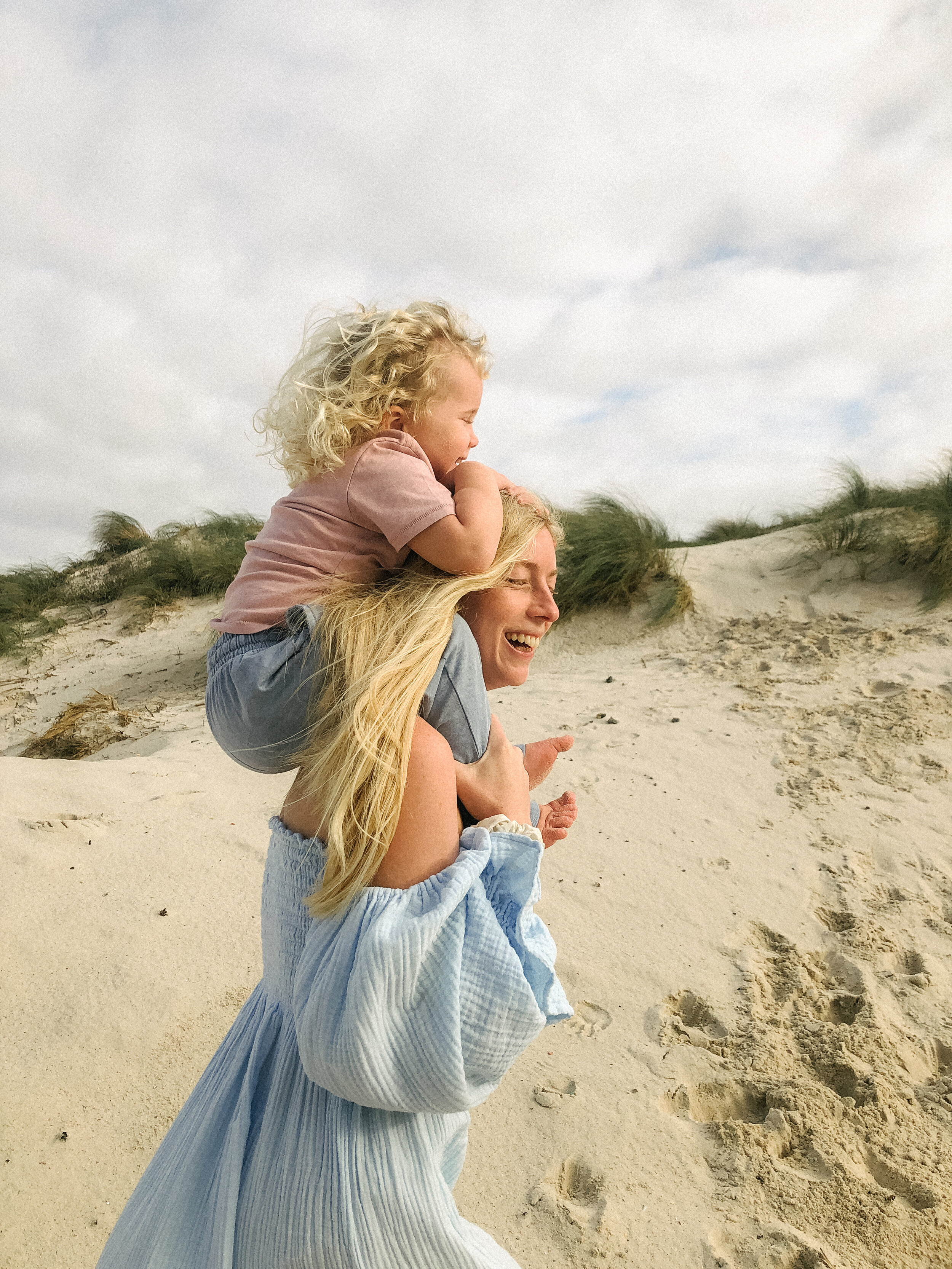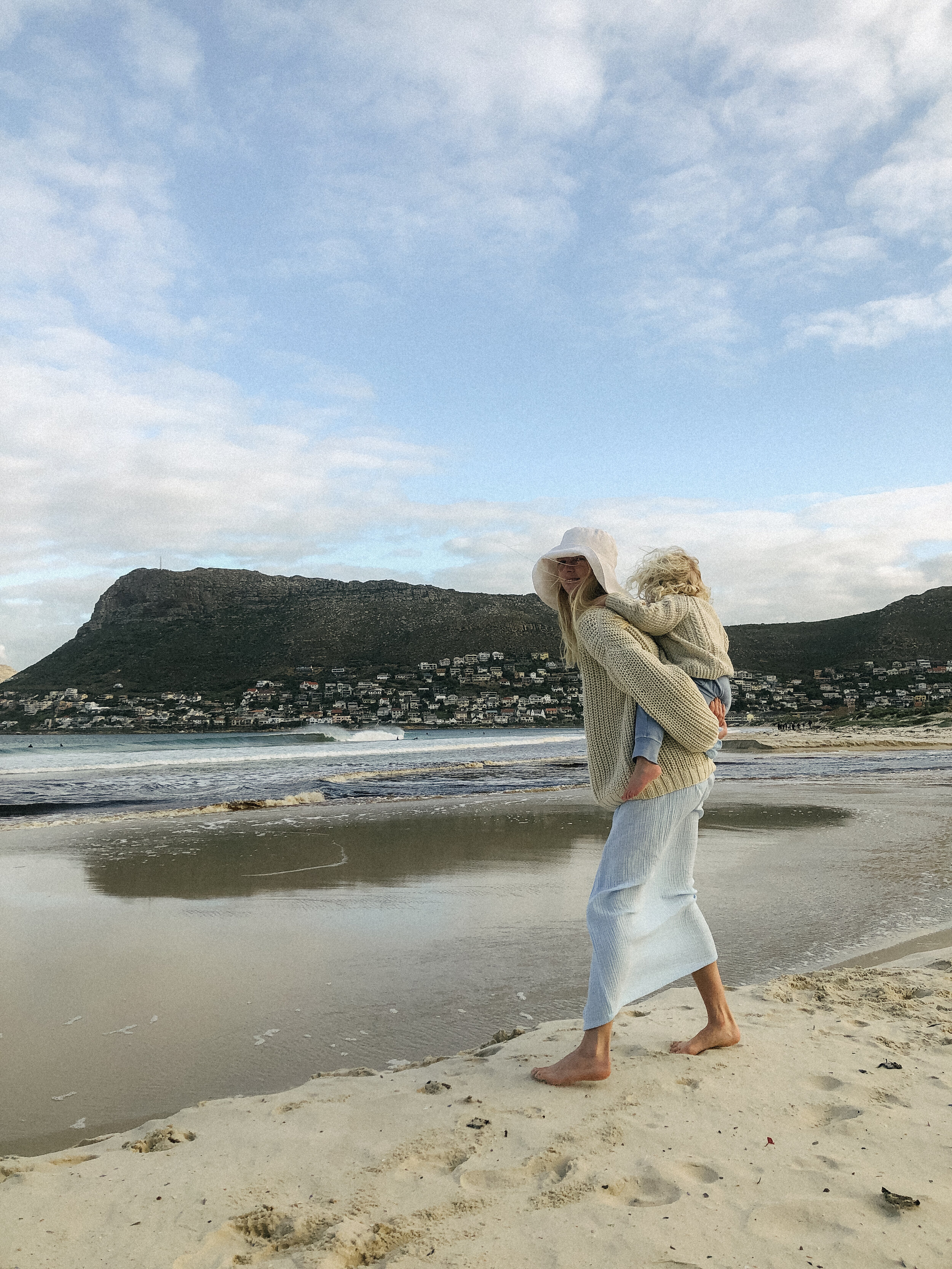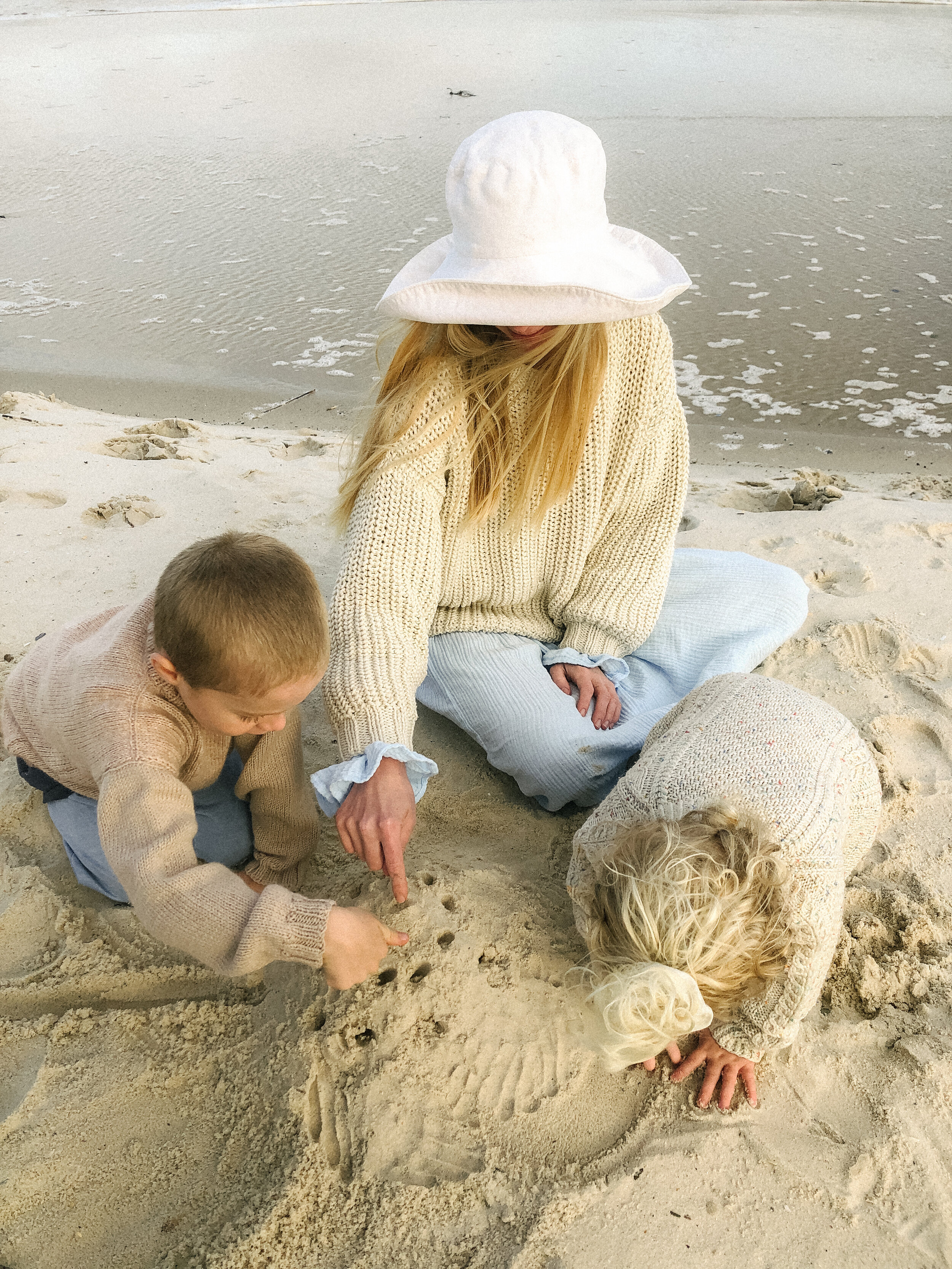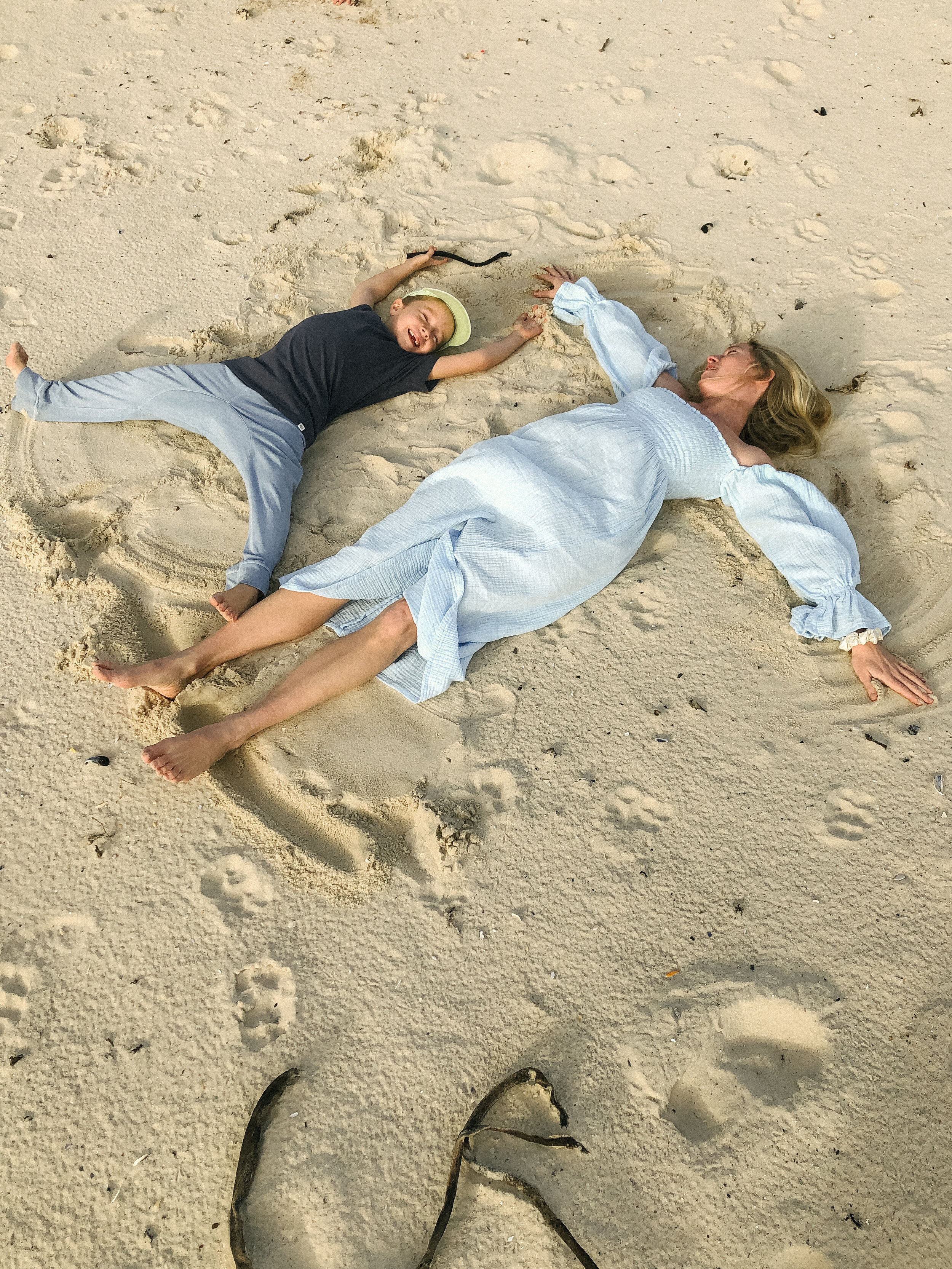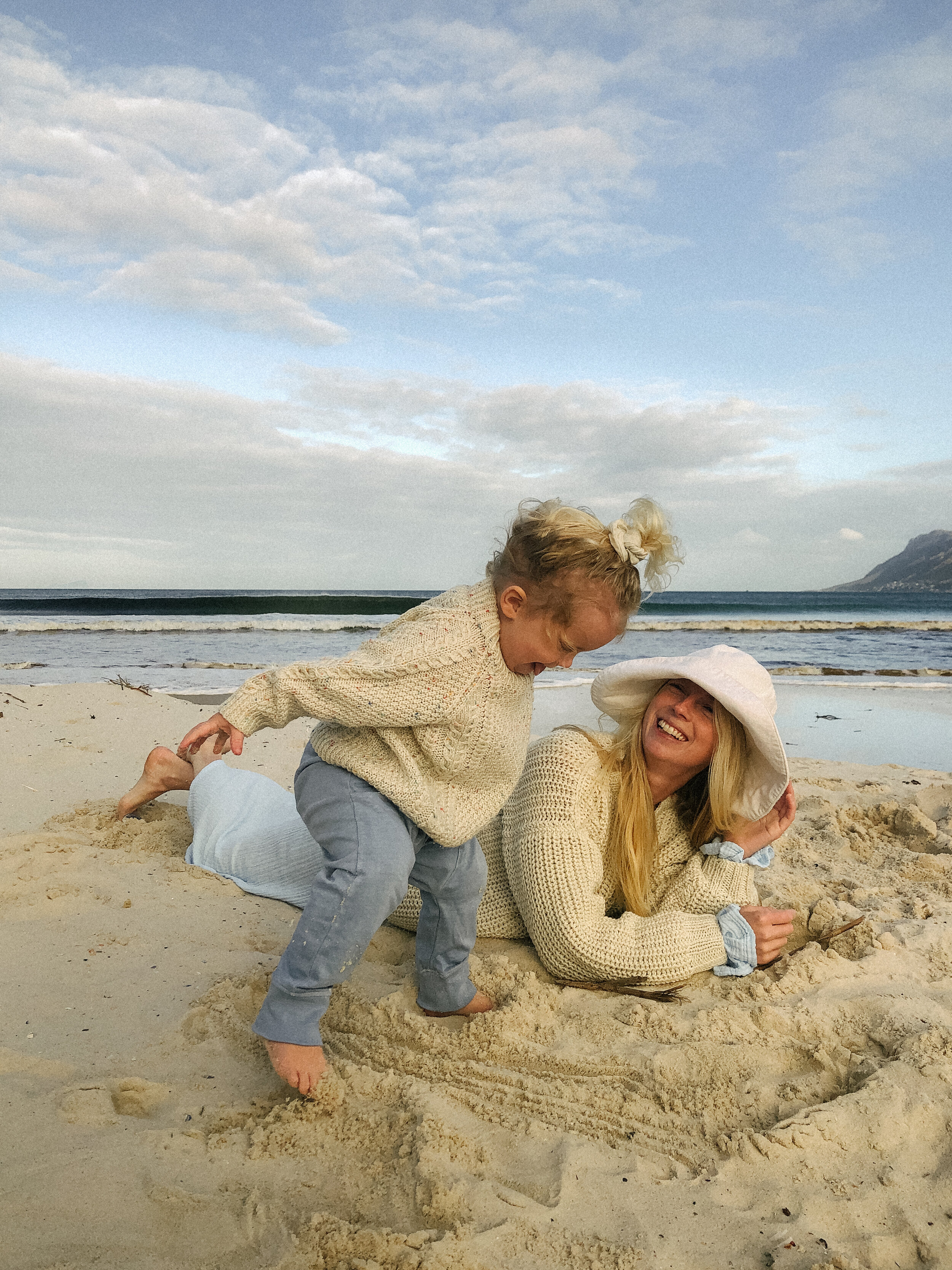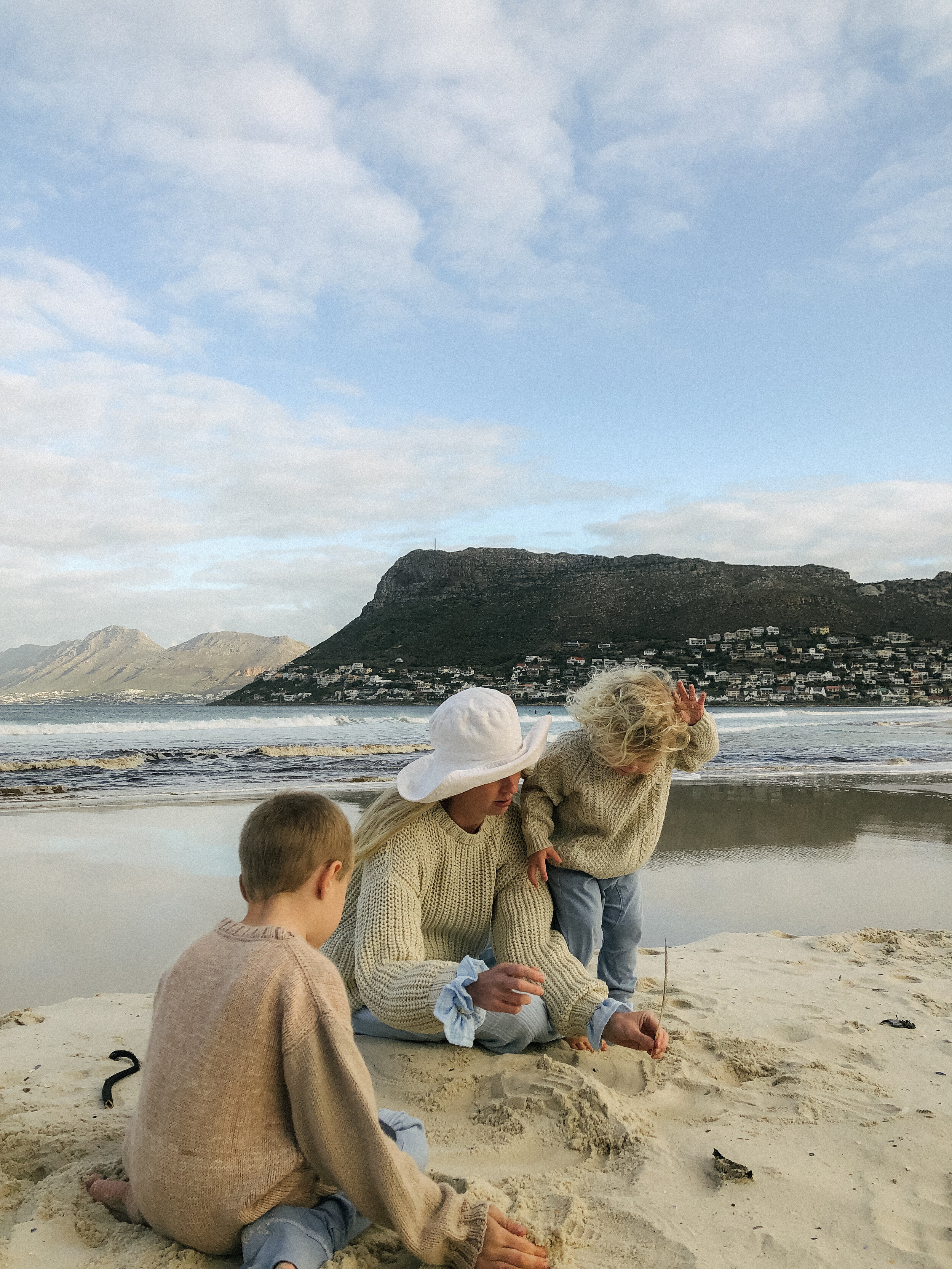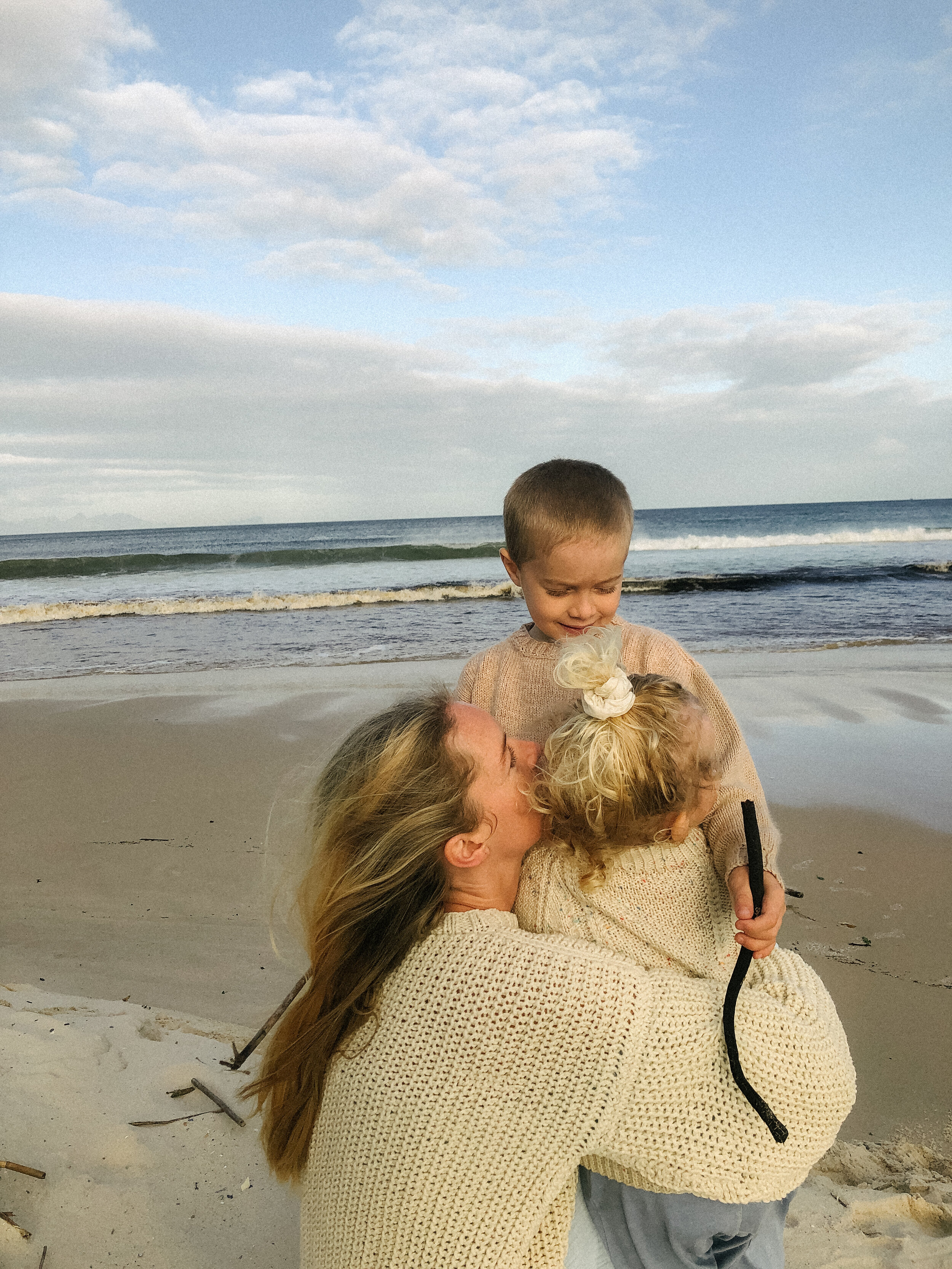Phoebe, South Africa
Photography by: Trina Cary Photography
TRIGGER WARNING: This interview includes discussion around domestic violence and abuse. I acknowledge that this content may be difficult. I also encourage you to care for your safety and well-being. If you, or someone you know is experiencing domestic violence, call one of the free helplines in your country - here is a list of global helplines
Introduction
Were you born and raised in South Africa?
I was born in Johannesburg, my family moved back to Cape Town when I was a year old. I have lived in Cape Town my whole life. So I am 100 percent born and raised here. I was born in 1991, the year after Nelson Mandela was released from prison, the last years of apartheid and before the 1994 election which made Nelson Mandela the president of South Africa.
Can you give me a little background on yourself?
I am a single mother to my two children, I have been alive for 30 years this year, my children are six and two and a bit. This year I will have been a mother for seven years, and a single mother for three of them. Before now I was married, and had been with my ex-husband for almost ten years. I had an idea of how my life would pan out, but certainly never anticipated the end of my marriage and how it ended and for all the reasons it did. I also never in my wildest dreams thought I would become a doula, and have the privilege to witness and support birth and women’s power. At the same time as raising two people alone, singularly, while being the person I have become. I couldn’t have anticipated this life for myself, in both the good and bad ways. Currently, I am a mother and the many roles that includes, I am a doula and the many roles that includes in terms of emotional and physical support for others, I am a volunteer at a maternity hospital offering myself freely to mothers there in their labour and births. As well as studying in the time left over from all of that.
When I say I am a single mother, I mean in the literal sense. The biological father of my children is no longer in our lives, we do not co parent, he plays no role in our lives, the children have one parent, me. My children do not know him, and they will always know their family to be the three of us. I wouldn’t have it any other way now, because to raise children in a world where there is abuse and violence is not okay with me. We have come a long way in a difficult journey, where many people were lost and new people gained. I have been alone for years now, and after being in an abusive relationship it has taken me all those years to feel ready to feel love again, although for me to find a man now will probably be harder than everything I’ve already been through and it currently takes every bit of hope to believe that at some point there will be a man who is enough for us, and we won’t be too much for him.
How has being a mother influenced your career?
Being a mother makes me who I am. I would never have become a doula if I hadn’t experienced my own births. I wouldn’t be the strong, brave capable that I am today without my children. My experiences as a mother have shaped who I am, and I wouldn’t be able to be a doula without them. At the same time it is a struggle to be a mother and be a doula also, without a partner to support me and my children. Doing it alone makes it nearly impossible, but there is always just enough room for possibility to make it work if it’s what you know it’s meant for you.
What is your favourite part of being a doula?
My favourite part is witnessing the birth of every whole and perfect human being, and the birth of their mothers, which happens simultaneously. The strength and power of a woman giving birth is like nothing else in the world.
What are the ages of your two children?
My son is 6, soon to be seven and my daughter is 2 and a half.
Pregnancy
Can you tell me a little bit about your pregnancies?
Firstly, I loved being pregnant. I love the way it made me feel, even the hard parts. Its possibly one of my favourite things and ideally I would have had a partner, and ten children and lived on a farm. It saddens me that I will probably not have more children, and I cherish my two pregnancies very much. With my first child I had to learn everything, I was 22 years old and the first to have a baby in my friends and family. The only resource I had was the mothers who had their babies twenty something years ago, giving me not very relevant information on birth etc. Leading to me having to navigate what I believed in, and growing into a mother and strong adult using my own judgement. With my second child I loved being pregnant even more, physically I was so in tune with my body and with her. During my pregnancy with her my then husband strayed from us, and we endured a lot of abuse. Being abused while being pregnant is the most heart breaking thing, while having to protect your other child, yourself and your unborn child. Apart from the pain and heartbreak that happened during that time nothing could take away the sheer joy of being pregnant with my girl, and sharing it with my son who was always by my side. I went through that pregnancy alone, without a partner, enduring a lot of abuse and instead of having the father to share it with I learned that I was alone in the world. That we as individuals only have ourselves to rely on, and I found my power in that. I wanted to birth her in my power, I wanted to take my power back, I wanted to heal myself and my children from our pain, our rejection, our hurt. So my pregnancies were powerful for me, the showed me where I needed to level up in myself, they gave me a time line and they applied pressure to the places I needed to put my energy and things that needed to change. Pregnancy is a transformative time, primal, it is a gift that treated with the right kind of attention on one’s self can guide you into huge growth. Less time and energy spent on things, on minor details of baby things to acquire and rather on you, and looking at yourself and gathering yourself to become a mother. Pregnancy is the boot camp for motherhood.
What type of prenatal care do women receive throughout pregnancy in South Africa? (i.e. obgyn or midwife-led)?
The majority of prenatal care is through government hospitals and MOU’s located in the main underprivileged areas of South Africa, cantered towards women getting the basic care they need that is hugely underfunded. These are often set up by NGO’s run by very good people who care a lot, like The Zoe Project who I volunteer for as a doula. The majority of women in South Africa are living in poverty stricken areas, do not have access to health care, are unemployed or earning very little and with no access to women health education or care. Otherwise women generally go through the private hospital systems, with OBGYN’s. The lesser part of women hire private midwives and opt for home births. In my experience working in government hospitals I appreciate the level of care given, despite the hospitals not being as aesthetically pretty, no bells and whistles, the people who work there go the extra mile to ensure better birth care and mother and baby friendly care. Meaning they push for no intervention, natural births, breastfeeding, no formula feeding, skin to skin, kangaroo care, avoiding major surgery like caesarean sections. They are not there to get it over with, they know it is important to have support, to allow birth to progress naturally, to go home as soon as possible etc. At a private hospital this is not necessarily the case.
As a doula, what ways do you prepare mothers both physically and psychologically for birth?
I offer my support to them to process what’s going on with their bodies, their relationships, their fears and anxieties and hold space for them but also help them to process what they need to as it is a time to process. Educating the mothers is very important, giving them things to read, talking to them about birth and the process, about hospitals and home births. Offering my information to them so, explaining things, painting a picture, helping them to visualise. I also focus a lot on postpartum, and having a plan for after their baby is born. A lot of focus goes onto the birth and not enough on after the birth, in my opinion. Setting yourself up so that you can make that early transition into motherhood as easy as possible for yourself, and your partner is so important. As a doula you have a wealth of information, of experience, and resources and this is how we offer ourselves, by sharing this with our clients. We nurture them with every resource we have.
Birth
What are your philosophies around birth?
I believe that birth matters, and doing it the most convenient or easy way is a missed opportunity to be more and be better. Pain and discomfort in birth, and in any way in life, pushes us to grow. The process of birth is perfect, and done properly, births us as strong capable mothers who know to trust ourselves and our bodies. Such an important lesson, often missed due to fear. The fear of birth that society has cast on women is a shame, as women are the most sacred beings, with the most strength, and to believe in that is an act of rebellion against our society. To say ‘no’, to say ‘I can do this’, I only need me is birth anarchy. Some real badass shit, this lights my fire for women and for birth.
What are your favourite ways to support a mother during birth?
To guide them through whatever they need, and being able to offer that guidance is really special. Even just being there effects the mother and partner hugely, it creates a sense of safety and trust that effects birth positively. Otherwise the skills you have to guide a mother through pain and fear is powerful, rather than trying to numb the pain, we show the mother how to navigate the pain and tap into the pain, we move through the ebb and flow together, and way stay by their side.
What have you found the attitudes towards birth to be in South Africa? Relaxed? More medical-based?
In South Africa the majority of women have caesarean births, and operate within the medical system whether it be private hospitals of government hospitals. Home birth is on the rarer side of choice. To understand birth choices here you have to understand the socioeconomic influence, lack of options, lack of education, lack of funds, poverty, lack of support, lack of basic fundamental needs which effect women long before pregnancy and birth.
Can you share a little about your own birth experiences?
My first birth was in a private hospital, pretty traumatic but what I was taught birth was meant to be like, so I thought it was normal. Until as time passed, I continued to process my birth with my son and felt continuous dissatisfaction. I found it difficult to find closure. I had a vaginal birth, and absolutely did my best for what information I had then and what little knowledge I had of how beautiful and ecstatic birth could be. My mother always described birth as a car crash, and that is what I thought it should be. Then the years later pregnant with my daughter I had learned so much, processed so much, decided it was vital I have the ecstatic birth I deserved to have. I educated myself, endlessly watched birth videos, read, and visualised what I wanted. It was all I thought about, I wanted it so badly. I also knew I could have it, I believed in myself, my body and my baby more than I believed in anything else. I did not believe in hospitals, the systems, the medical based influences, I did not trust this and wanted to be as far away from it as possible. I decided, found a midwife I loved, started to really see the different type of care a holistic midwife offers compared to an OBGYN. I felt cared for, it was non-invasive, nothing was done unnecessarily to my body or baby, it was empowering, and therapeutic. I did not have one internal exam in my whole pregnancy, no body touched my body unless I said it was okay, but it was never necessary. I had minimal scans, all I did was let my body and baby do its job. It is sad and always difficult to talk about the abuse I endured during my pregnancy, and prefer not to go into detail about it, it will always be painful to talk about it, but I also learned that to take the shame away it is necessary to be open about it. I have affected a lot of other women in the last few years by being open about it, and sharing my strength with them. Domestic violence is common, especially in South Africa, and also happens often when women are pregnant. If you think about how damaging it is to a woman, to be abused while carrying a baby, often by the person who fathered the child and often your partner. The rejection, neglect, fear, manipulation, diminishment in a time where you should be the most loved and looked after is something that affects you forever. The most vulnerable time in a women’s life, and to be physically, verbally and emotionally abused during that time is heart breaking. It took me years to work through the hurt and pain. I left my then husband a month before my daughter was born, I was eight months pregnant. It had escalated to the point of life or death, and even if I could put up with the abuse I couldn’t allow it for my children. I packed up my house, alone, despite being almost full term and having a home birth, I had to find a new home, I didn’t care at the point. I would have my baby in the car or wherever, I was so casual about it and knew it didn’t matter. I’d have my baby anywhere but in that house. I was going to start from scratch, and give my daughter a fresh and clean slate, born into safety surrounded by love. Love isn’t a pretty home, or a fancy birth centre, it’s your mother birthing you like you should be, and that could be anywhere. It was a wild time, I had a broken heart, no home just a house filled with bad memories, no plan, but I felt safe for the first time in so long that I could close my eyes and know I was safe to rest. I could relax in that there was no threat anymore, and my son and I didn’t have to be on edge, afraid anymore, we could just rest and be safe. I ended up going to my friend’s house to have my daughter, she said come over and have your baby, and I needed that kind of energy for birth. Casual, no biggie, have some tea and a baby at my house. And that’s exactly what I did. I laboured alone all night, naked, in the dark in her house, I didn’t need anyone. My midwives arrived just before she was born, just in time. It was perfect, the wildest deep pain, your body doing all the work for you, and you just have to surrender to it, totally give in. My friend held my hand during the ring of fire, she told me to breathe. My son sat at the end of the bed and watched his sister being born. The smile on his face I will never forget, pure bewilderment. A gift for the three of us, a safe birth into our new life, built on the foundation of my strength. She had a true knot which is very rare, and was wrapped up her umbilical cord across her body and around her neck like a little cowgirl. Perfect. It was perfect, the three of us.
What ways do you as a doula recommend to support physical healing of the body following birth? What did you personally find most beneficial?
First and for most, rest, and the opportunity to rest after birth. The only thing a mother should be doing, is resting, nourishing her body with food, and tending to her baby who should with her at all times. As a doula we can offer support postpartum, with home visits brining food, helping in whatever way needed, and allowing the mother to rest and be taken care of. I would say rest, nourishment with bone broth and other nutrient rich foods, and support. In the case of having had serious surgery like a caesarean birth, then much more care and support is needed in order for healing to take place.
What type of appointments typically follow birth for mothers and will these be in-home or out-of-home visits?
Typically after birth I do home visits at the mothers home, these postpartum visits are crucial to allow for the mother or parents to process their birth, to ask the questions they need, to get support with breastfeeding/ bottle feeding, for assistance with care of the baby and care of the mother physically and emotionally most of all. One postpartum visit is required, but depending on the birth, the mother, the support needed I offer more than one visit. This visit needs to take place within the first days after the birth, when milk supply comes in, when breastfeeding can be at its most difficult, when the mothers hormones shift dramatically and postpartum anxiety and disorders can first appear. It is a vital time.
Postpartum
What do you personally believe are the most important ways to aid postpartum recovery both physically and emotionally?
As per the previous question, nourishment and rest physically are key. This requires support being given to the mother. By the partner, if there is one, by family, by a doula, by friends. I’m talking about dropping off food, gifting the mother a massage at home, going grocery shopping for the mother, doing a load of washing, cleaning the kitchen, walking the dog. Whatever the mother needs so that she can feel at ease, with no pressure to perform for guests, and appear as something she isn’t. The mother needs to be taken care of so that she can take care of her baby. Simple.
As a doula, what do you think is something all mothers need postpartum?
Support. Rest. Nourishment. On repeat.
Breastfeeding
Did you breastfeed your children? Can you share a little bit about your journey?
I breastfed both my children, my son until he was two and a half. And my daughter self-weaned, much to my heart break when she was almost six months old and started solids. She is extremely independent by nature, and loves food. So she stated eating, and decided she was okay without the boob. This was hard for me, but children are who they are from conception. My son, far less independent and being the first child struggled to stop breastfeeding. I loved breastfeeding both of my children so much, I cherished that time and always will. Both breastfeeding journeys had their own challenges, breastfeeding for the first time was difficult. It is a learned behaviour, and needs to be taught to a mother. It is instinctual for all babies, they know what to do. But in our culture, we have lost our shared culture of breastfeeding, making women hide while they breastfeed, when this is in fact how we learn, from others. Breastfeeding can be such a difficult journey, it takes perseverance and dedication and self-sacrifice. In pregnancy you learn to give your body, in birth you give your body, in breastfeeding you give your body and once you have stopped breastfeeding you give your body again, and for the rest of your life after giving your body you will never look or feel the same.
Do you think breastfeeding in public has been socially accepted in your country?
In South Africa we have a multilingual and culturally diverse population. Which makes belief systems diverse. This is seen in pregnancy, in birth, and breastfeeding and child minding. We do not have one culture, or two, we have a country made up of eleven official languages plus. There is no one ‘culture of South Africa’. This means we are all trying to do what we believe is best, but there will always be someone or many who do not believe the same. It is difficult but beautiful raising children in a society of such diversity, I think it is healthy for us all. It also makes motherhood a little less simple.
Is breastfeeding support readily available?
No, women’s educational physical and emotional support in general in South Africa is not readily available. Women, mothers and children have the hardest time of all. In the majority of cultures in South Africa breastfeeding is a shared and learned practice, especially in African cultures. It is in the white western cultures that it is hidden away and shamed. But the access to breastfeeding support is more available to these women, if you have the means, you can access the support. I will say that in government hospitals and NGO MOU’s located in most areas for women to access, they offer breastfeeding support and education, and put great emphasis on its importance for mother and child. When I had my first child no one showed me how to breastfeed, no one told me anything about my milk coming in and how it would feel, how to soothe the discomforts of breastfeeding, how hard it would be, no one in the hospital showed me how it was done. I learned everything on my own. I will never forget my mother coming over with cabbages to put on my breasts, and how wonderful it felt.
How long do babies typically breastfeed in South Africa?
I would say six months to two years old. This is dependent on many factors. Like with all women in the world we are advised to breastfeed for the first two years of our child’s life. Some women choose not to breastfeed, some give up, some hate it, some babies self-wean, some breast feed for longer than two years. No matter where you are in the world it will always be a diverse range as of course there are constant factors like socioeconomic ones, but at the end of the day each baby and each mother is unique.
South Africa
What is your favourite thing about being a mother and raising children in South Africa?
South Africa is a beautiful place, its people and nature are special. I’d have to say the nature of the mountains, landscapes, beaches is my favourite part. Sadly as a single mother with two small children, and no partner, I am limited to what I get to experience. It is not safe enough to go camping, go hiking alone, many places have been taken away from us because of crime especially against women and children. We spend most of our time on the beach, its one of the few places I can feel safe alone with my kids. It is exhausting having to protect and be alert constantly, to be prepared to defend myself and two other people any time. It’s made me into a physically strong, intuitive person, always alert and reading the people around us, something I learned early in life as a girl in South Africa.
If you think the world could learn one thing about how South Africa approaches pregnancy, birth, & motherhood, what would it be?
Perhaps that in a world of multiple cultures, beliefs, backgrounds and understanding that we can navigate each other’s worlds with some understanding. To have some space for others and their worlds, as culture is so diverse here. As a doula in South Africa, culture is a huge factor. There are so many things we have to take into consideration especially in a birth, sometimes we do not speak the same language except for the shared language of touch and kindness. Some cultures prohibit women from making any sounds during labour, and must be silent, some believe men shouldn’t be there, or the man is forbidden to come into contact with blood and cannot touch the mother or baby. People no matter who they are, what their beliefs are, understand the language of kindness and touch. It is universal. And this is the job of the doula.
What is one piece of advice you would like to give other mothers?
I would tell them to trust themselves, their bodies and their instincts. Be strong in yourself, what you feel is right for you, and your children. Let that guide you in motherhood. Sometimes it will save you, save your child, what you believe is what guides you. Listen to your instincts. Trust yourself! It is naïve to think you can have others save you, look after you or tell you what’s right. It is only you that can do that.

